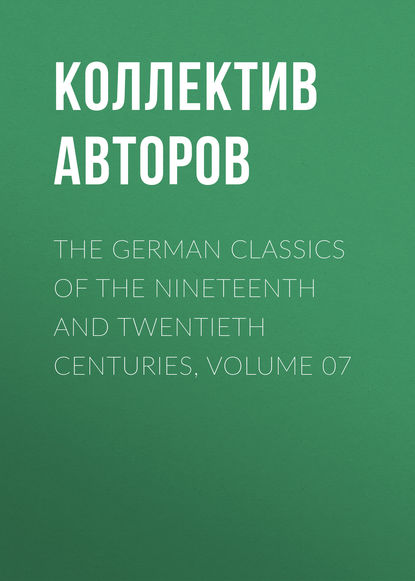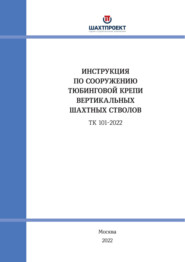По всем вопросам обращайтесь на: info@litportal.ru
(©) 2003-2024.
✖
The German Classics of the Nineteenth and Twentieth Centuries, Volume 07
Настройки чтения
Размер шрифта
Высота строк
Поля
"'Those people must be helped,' said the Captain. 'The tricks of the union do not amount to much. I know some one who will see to that. The important thing is a contribution toward the expenses of the house and the furniture. Let us give a benefit concert, admission fee ad libitum!'
"The suggestion found hearty approval. Somebody picked up the salt-box and said: 'We must have an historic introduction, with a description of Herr Mozart's purchase, and an account of his philanthropic spirit; and we will put this box on the table to receive the contributions and arrange the rakes as decorations.' This did not happen, however, though the concert came off; and what with the receipts of the concert and outside contributions, the young couple had more than enough for their housekeeping outfit, and also the other obstacles were quickly removed.
"The Duscheks, in Prague, dear friends of ours, with whom we are to stay, heard the story, and Frau Duschek asked for some of the woodenware as souvenirs. So I laid aside two which I thought were suitable, and was taking them to her.
"But since we have made another artist friend by the way, one who is, too, about to provide her wedding furnishings, and who will not despise what Mozart has chosen, I will divide my gift, and you, Eugenie, may choose between a lovely open-work rod for stirring chocolate and the salt-box, which is decorated with a tasteful tulip. My advice is to take the salt-box; salt, as I have heard, is a symbol of home and hospitality, and with the gift go the best and most affectionate wishes."
So ended Madame Mozart's story. How pleased and gratified her listeners were is easily to be imagined. Their delight was redoubled when, in the presence of the whole party, the interesting articles were brought out, and the model of patriarchal simplicity was formally presented. This, the Count vowed, should have in the silver-chest of its present owner and all her posterity, as important a place as that of the Florentine master's famous work.
It was, by this time, almost eight o'clock and tea-time, and soon our master was pressingly reminded of his promise to show his friends Don Juan, which lay under lock and key, but, happily, not too deep down in his trunk. Mozart was ready and willing, and by the time he had told the story of the plot and had brought the libretto, the lights were burning at the piano.
We could wish that our readers could here realize a touch, at least, of that peculiar sensation with which a single chord, floating from a window as we pass, stops us and holds us spellbound—a touch of that pleasant suspense with which we sit before the curtain in the theatre while the orchestra is still tuning! Or am I wrong? Can the soul stand more deeply in awe of everlasting beauty than when pausing before any sublime and tragic work of art—Macbeth, OEdipus, or whatever it may be? Man wishes and yet fears to be moved beyond his ordinary habit; he feels that the Infinite will touch him, and he shrinks before it in the very moment when it draws him most strongly. Reverence for perfect art is present, too; the thought of enjoying a heavenly miracle—of being able and being permitted to make it one's own—stirs an emotion—pride, if you will—which is perhaps the purest and happiest of which we are capable.
This little company, however, was on very different ground from ours. They were about to hear, for the first time, a work which has been familiar to us from childhood. If one subtracts the very enviable pleasure of hearing it through its creator, we have the advantage of them; for in one hearing they could not fully appreciate and understand such a work, even if they had heard the whole of it.
Of the eighteen numbers which were already written the composer did not give the half (in the authority from which we have our statement we find only the last number, the sextet, expressly mentioned), and he played them in a free sort of transcription, singing here and there as he felt disposed. Of his wife it is only told that she sang two arias. We might guess, since her voice was said to be as strong as it was sweet, that she chose Donna Anna's Or sai, chi l'onore, and one of Zerlina's two arias.
In all probability Eugenie and her fiancé were the only listeners who, in spirit, taste, and judgment, were what Mozart could wish. They sat far back in the room, Eugenie motionless as a statue, and so engrossed that, in the short pauses when the rest of the audience expressed their interest or showed their delight in involuntary exclamations, she gave only the briefest replies to the Baron's occasional remarks.
When Mozart stopped, after the beautiful sextet, and conversation began again, he showed himself particularly pleased with the Baron's comments. They spoke of the close of the opera, and of the first performance, announced for an early date in November; and when some one remarked that certain portions yet to be written must be a gigantic task, the master smiled, and Constanze said to the Countess, so loudly that Mozart must needs hear: "He has ideas which he works at secretly; before me, sometimes."
"You are playing your part badly, my dear," he interrupted. "What if I should want to begin anew? And, to tell the truth, I'd rather like to."
"Leporello!" cried the Count, springing up and nodding to a servant.
"Bring some wine. Sillery—three bottles."
"No, if you please. That is past; my husband will not drink more than he still has in his glass."
"May it bring him luck—and so to every one!"
"Good heavens! What have I done," lamented Constanze, looking at the clock. "It is nearly eleven, and we must start early tomorrow. How shall we manage?"
"Don't manage at all, dear Frau Mozart."
"Sometimes," began Mozart, "things work out very strangely. What will my Stanzl say when she learns that the piece of work which you are going to hear came to life at this very hour of the night, just before I was to go on a journey?"
"Is it possible! When? Oh! three weeks ago, when you were to go to Eisenstadt."
"Exactly. This is how it came about. I came in after ten (you were fast asleep) from dinner at the Richters'. and intended to go to bed early, as I had promised, for I was to start very early in the morning. Meanwhile Veit had lighted the candles on the writing-table, as usual. I made ready for bed mechanically, and then thought I would take just a look at the last notes I had written. But, cruel fate! with woman's deuced inconvenient spirit of order you had cleared up the room and packed the music—for the Prince wished to see a number or two from the opera. I hunted, grumbled, scolded-all in vain. Then my eye fell on a sealed envelope from Abbate—his pot-hooks in the address. Yes; he had sent me the rest of his revised text, which I had not hoped to see for months. I sat down with great curiosity and began to read, and was enraptured to find how well the fellow understood what I wanted. It was all much simpler, more condensed, and at the same time fuller. The scene in the churchyard and the finale, with the disappearance of the hero, were greatly improved. 'But, my excellent poet,' I said to myself, 'you need not have loaded me with heaven and hell a second time, so carelessly.'
"Now, it is never my habit to write any number out of order, be it never so tempting; that is a mistake which may be too severely punished. Yet there are exceptions, and, in short, the scene near the statue of the governor, the warning which, coming suddenly from the grave of the murdered man, interrupts so horribly the laughter of the revelers—that scene was already in my head. I struck a chord, and felt that I had knocked at the right door, behind which lay all the legion of horrors to be let loose in the finale. First came out an adagio—D-minor, only four measures; then a second, with five. 'There will be an extraordinary effect in the theatre,' thought I, 'when the strongest wind instruments accompany the voice.' Now you shall hear it, as well as it can be done without the orchestra."
He snuffed out the candles beside him, and that fearful choral, "Your laughter shall be ended ere the dawn," rang through the death-like stillness of the room. The notes of the silver trumpet fell through the blue night as if from another sphere—ice-cold, cutting through nerve and marrow. "Who is here? Answer!" they heard Don Juan ask. Then the choral, monotonous as before, bade the ruthless youth leave the dead in peace.
After this warning had rung out its last notes, Mozart went on: "Now, as you can think, there was no stopping. When the ice begins to break at the edge, the whole lake cracks and snaps from end to end. Involuntarily, I took up the thread at Don Juan's midnight feast, when Donna Elvira has just departed and the ghost enters in response to the invitation. Listen!"
And then the whole, long, horrible dialogue followed. When the human voices have become silent, the voice of the dead speaks again. After that first fearful greeting, in which the half-transformed being refuses the earthly nourishment offered him, how strangely and horribly moves the unsteady voice up and down in that singular scale! He demands speedy repentance; the spirit's time is short, the way it must travel, long. And Don Juan, in monstrous obstinacy withstanding the eternal commands, beneath the growing influence of the dark spirits, struggles and writhes and finally perishes, keeping to the last, nevertheless, that wonderful expression of majesty in every gesture. How heart and flesh tremble with delight and terror! It is a feeling like that with which one watches the mighty spectacle of an unrestrained force of nature, or the burning of a splendid ship. In spite of ourselves, we sympathize with the blind majesty, and, shuddering, share the pain of its self-destruction.
The composer paused. For a while no one could speak. Finally, the Countess, with voice still unsteady, said "Will you give us some idea of your own feelings when you laid down the pen that night?"
He looked up at her as if waked from a dream, hesitated a moment, and then said, half to the Countess, half to his wife: "Yes, my head swam at last. I had written this dialogue and the chorus of demons, in fever heat, by the open window, and, after resting a moment, I rose to go to your room, that I might talk a little and cool off. But another thought stopped me half way to the door." His glance fell, and his voice betrayed his emotion. "I said to myself, 'If you should die tonight and leave your score just here, could you rest in your grave?' My eye fell on the wick of the light in my hand and on the mountain of melted wax. The thought that it suggested was painful. 'Then,' I went on, 'if after this, sooner or later, some one else were to complete the opera, perhaps even an Italian, and found all the numbers but one, up to the seventeenth—so many sound, ripe fruits, lying ready to his hand in the long grass-if he dreaded the finale, and found, unhoped for, the rocks for its construction close by—he might well laugh in his sleeve. Perhaps he would be tempted to rob me of my honor. He would burn his fingers, though, for I have many a good friend who knows my stamp and would see that I had my rights.'
"Then I thanked God and went back, and thanked your good angel, dear wife, who held his hand so long over your brow, and kept you sleeping so soundly that you could not once call to me. When at last I did go to bed and you asked me the hour, I told you you were two hours younger than you were, for it was nearly four; and now you will understand why you could not get me to leave the feathers at six, and why you had to dismiss the coach and order it for another day."
"Certainly," answered Constanze; "but the sly man must not think that I was so stupid as not to know something of what was going on. You didn't need, on that account, to keep your beautiful new numbers all to yourself."
"That was not the reason."
"No, I know. You wanted to keep your treasure away from criticism yet a little while."
"I am glad," cried the good-natured host, "that we shall not need to grieve the heart of a noble Vienna coachman to-morrow, when Herr Mozart cannot arise. The order, 'Hans, you may unharness!' always makes one sad."
This indirect invitation for a longer stay, which was heartily seconded by the rest of the family, obliged the travelers to explain their urgent reason for declining it; yet they readily agreed that the start need not be made so early as to interfere with a meeting at breakfast.
They stood, talking in groups, a little while longer. Mozart looked about him, apparently for Eugenie; since she was not there he turned naïvely with his question to Franziska.
"What do you think, on the whole, of our Don Juan? Can you prophesy anything good for him?"
"In the name of my aunt, I will answer as well as I can," was the laughing reply. "My opinion is that if Don Juan does not set the world mad, the good Lord may shut up his music chests for years to come, and give mankind to understand—"
"And give mankind," corrected the Count, "the bag-pipes to play on, and harden the hearts of the people so that they worship Baal."
"The Lord preserve us!" laughed Mozart. "But in the course of the next sixty or seventy years, long after I am gone, will arise many false prophets."
Eugenie approached, with the Baron and Max; the conversation took a new turn, growing ever more earnest and serious, and the composer, ere the company separated, rejoiced in many a word of encouragement and good cheer. Finally, long after midnight, all retired; nor, till then, had any one felt weary.
Next day—for the fair weather still held—at ten o'clock a handsome coach, loaded with the effects of the two travelers, stood in the courtyard. The Count, with Mozart, was waiting for the horses to be put in, and asked the master how the carriage pleased him.
"Very well, indeed; it seems most comfortable." "Good! Then be so kind as to keep it to remind you of me."
"What! You are not in earnest?"
"Why not?"
"Holy Sixtus and Calixtus! Constanze, here!" he called up to the window where, with the others, she sat looking out. "The coach is mine. You will ride hereafter in your own carriage."
He embraced the smiling donor, and examined his new possession on all sides; finally he threw open the door and jumped in, exclaiming: "I feel as rich and happy as Ritter Gluck. What eyes they will make in Vienna!"
"I hope," said the Countess, "when you return from Prague, to see your carriage again, all hung with wreaths."
Soon after this last happy scene the much-praised carriage moved away with the departing guests, and rolled rapidly toward the road to Prague. At Wittingau the Count's horses were to be exchanged for post-horses, with which they would continue their journey.
When such excellent people have enlivened our houses by their presence, have given us new impulses through their fresh spirits, and have made us feel the blessings of dispensing hospitality, their departure leaves an uncomfortable sense of vacancy and interruption, at least for the rest of the day, and especially if we are left to ourselves. The latter case, at least, was not true with our friends in the palace. Franziska's parents and aunt soon followed the Mozarts. Franziska herself, the Baron, and Max of course, remained. Eugenie, with whom we are especially concerned, because she appreciated more deeply than the others the priceless experience she had had—she, one would think, could not feel in the least unhappy or troubled. Her pure happiness in the truly beloved man to whom she was now formally betrothed would drown all other considerations; rather, the most noble and lovely things which could move her heart must be mingled with that other happiness. So would it have been, perhaps, if she could have lived only in the present, or in joyful retrospect. But she had been moved by anxiety while Frau Mozart was telling her story, and the apprehension increased all the while that Mozart was playing, in spite of the ineffable charm beneath the mysterious horror of the music, and was brought to a climax by his own story of his night work. She felt sure that this man's energy would speedily and inevitably destroy him; that he could be but a fleeting apparition in this world, which was unable to appreciate the profusion of his gifts.
This thought, mingled with many others and with echoes of Don Juan, had surged through her troubled brain the night before, and it was almost daylight when she fell asleep. Now, the three women had seated themselves in the garden with their work; the men bore them company, and when the conversation, as was natural, turned upon Mozart, Eugenie did not conceal her apprehensions. No one shared them in the least, although the Baron understood her fully. She tried to rid herself of the feeling, and her friends, particularly her uncle, brought to her mind the most positive and cheering proofs that she was wrong. How gladly she heard them! She was almost ready to believe that she had been foolishly alarmed.
Some moments afterward, as she passed through the large hall which had just been swept and put in order, where the half-drawn green damask curtains made a soft twilight, she stopped sadly before the piano. It was like a dream, to think who had sat there but a few hours before. She looked long and thoughtfully at the keys which he had touched last; then she softly closed the lid and took away the key, in jealous care lest some other hand should open it too soon. As she went away, she happened to return to its place a book of songs; an old leaf fell out, the copy of a Bohemian folk-song, which Franziska, and she too, had sung long ago. She took it up, not without emotion, for in her present mood the most natural occurrence might easily seem an oracle. And the simple verses, as she read them through again, brought the hot tears to her eyes:

















